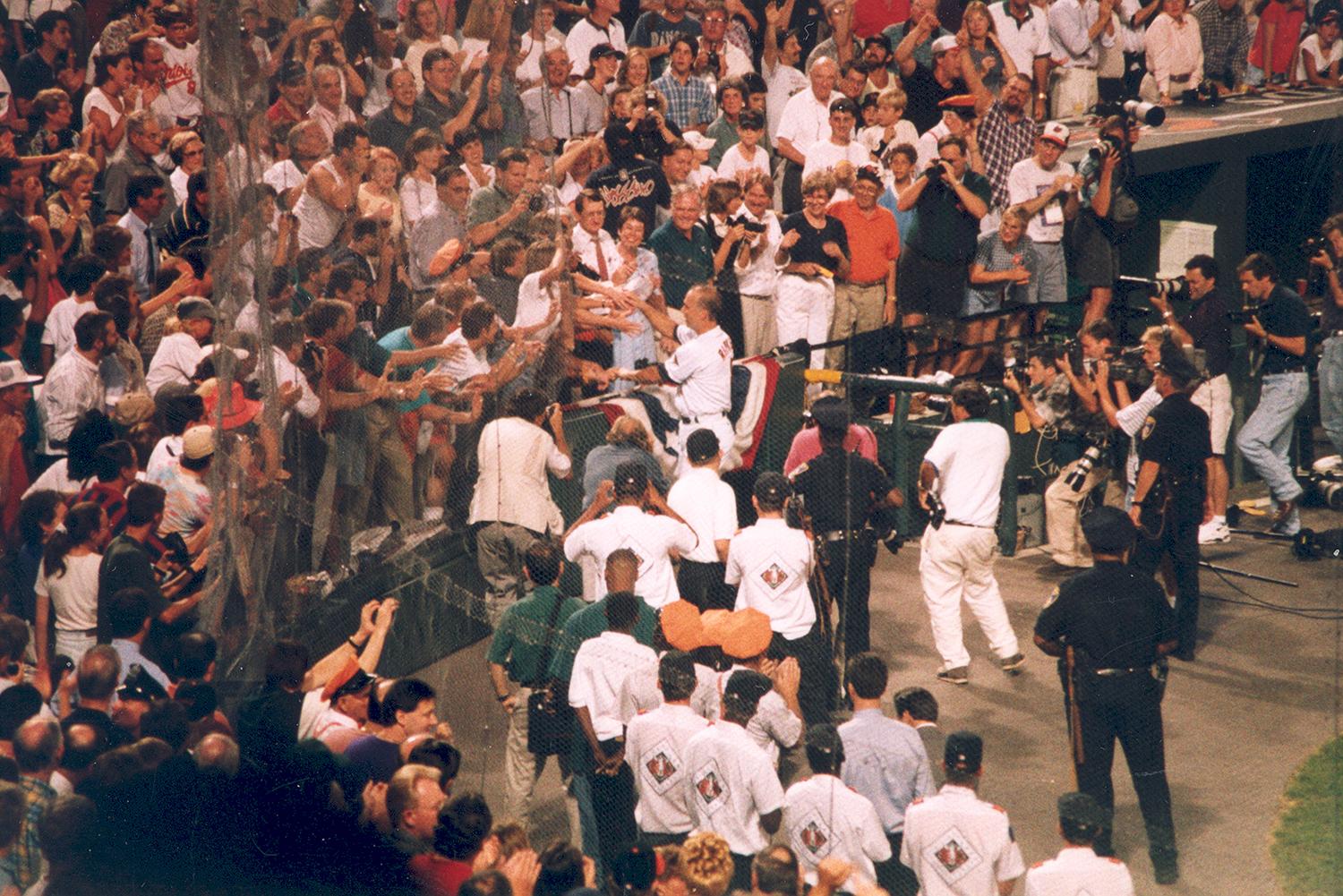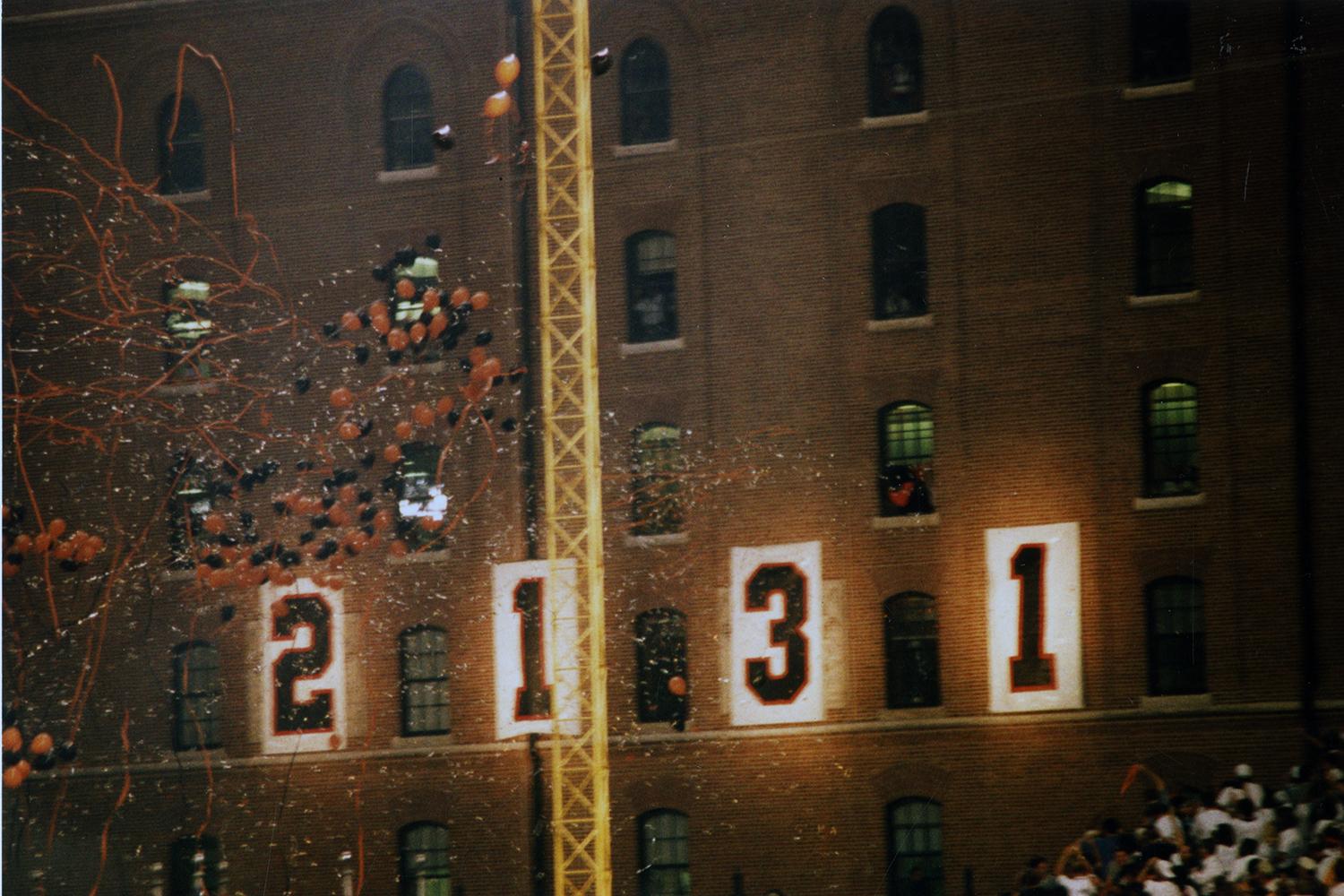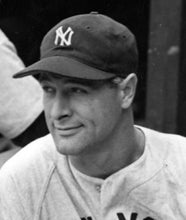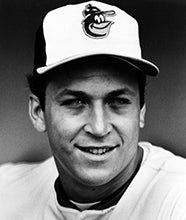- Home
- Our Stories
- Cal Ripken breaks Lou Gehrig’s record
Cal Ripken breaks Lou Gehrig’s record
If the camera man had zoomed in on Cal Ripken Jr. as he left the field in the middle of the fifth inning on Sept. 6, 1995, no one would have been able to tell that he was breaking a record that many thought was unbreakable.
His head was down as he casually jogged toward the Baltimore Orioles dugout, without so much as a wave to the crowd. But what was happening on the field nearby was a very different story.
Hall of Fame Membership
There is no simpler, and more essential, way to demonstrate your support than to sign on as a Museum Member.
The moment Manny Alexander caught Damion Easley’s pop-fly to end the top of the inning, Camden Yards erupted into applause. The “0” in “2,130” hanging on the B&O Warehouse aptly dropped to show “2,131,” as the night air became flooded with black and orange balloons.
“It just kept going and going,” Ripken said in an interview with MLB Network. “Rafael Palmeiro and Bobby Bonilla said we’re not getting this thing going again until you take a lap. They physically grabbed me, threw me out there. And during the first part of that lap, I said ‘OK, I’ll just do it really quick.’ After one handshake, two handshakes, two looks in the face, all of a sudden it became a whole lot more intimate of a celebration.”
On that night in 1995, the Iron Man eclipsed the 2,130-consecutive games record set by Lou Gehrig. In the wake of the 1994 player’s strike, Ripken’s self-effacing progress toward the mark provided a positive narrative in the baseball world – at a time when the tension between the fans, players and owners seemed as unbreakable as Gehrig’s streak once did. But for Ripken, he was just doing his job.
“I never really thought about the streak,” Ripken said to MLB. “I never really allowed myself to think about the streak. It was very simple, I wanted to come to the ballpark, I wanted to play, I wanted to help the team win.”
Ripken would continue playing until Sept. 20, 1998, when he removed himself from the lineup at 2,632 games.
“We like baseball,” Ripken said to the Washington Post. “We like the history of baseball. And I guess I became a symbol of that.”
Alex Coffey was the communications specialist at the National Baseball Hall of Fame
Related Stories
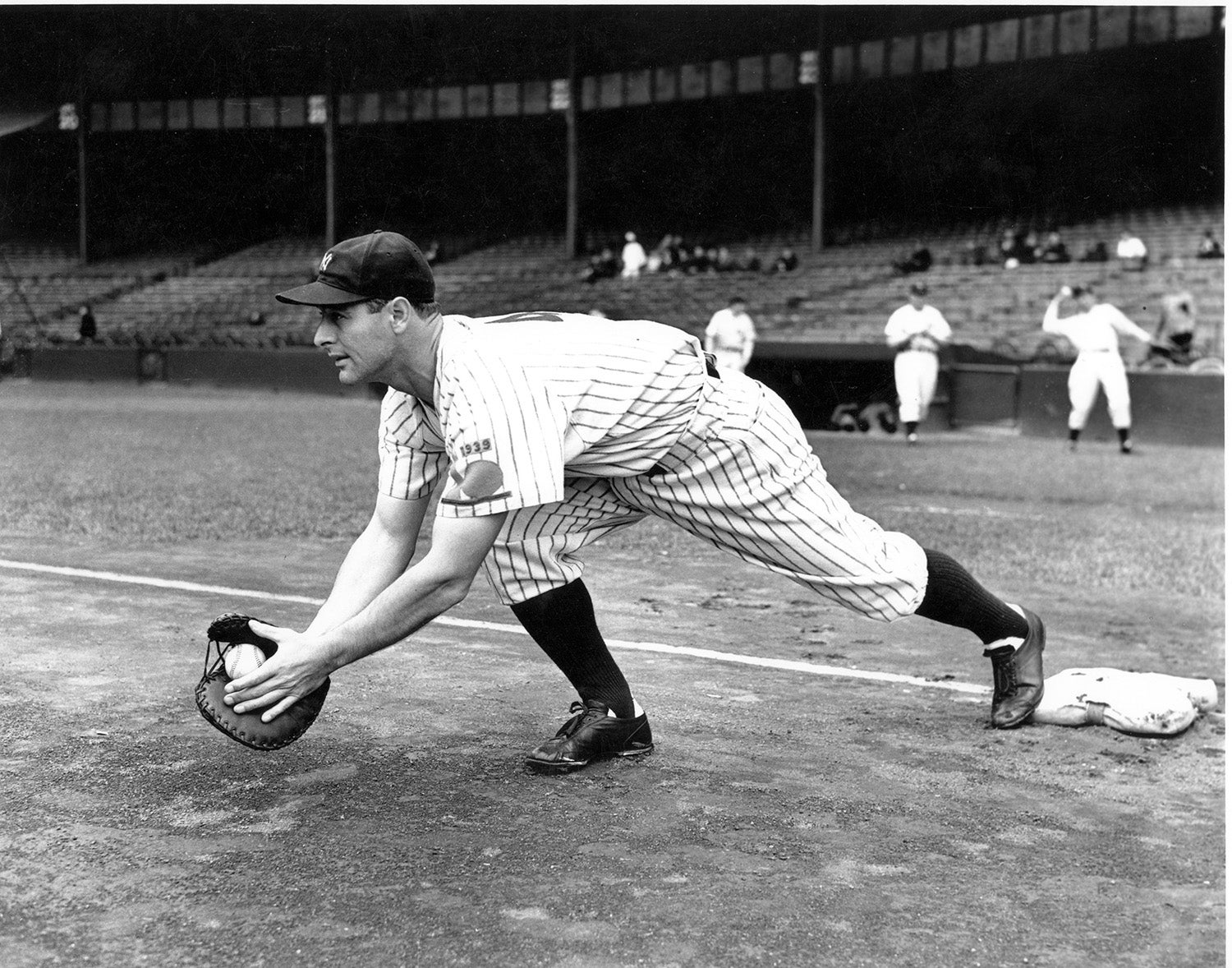
Lou Gehrig appears in his 2,000th consecutive game for the Yankees
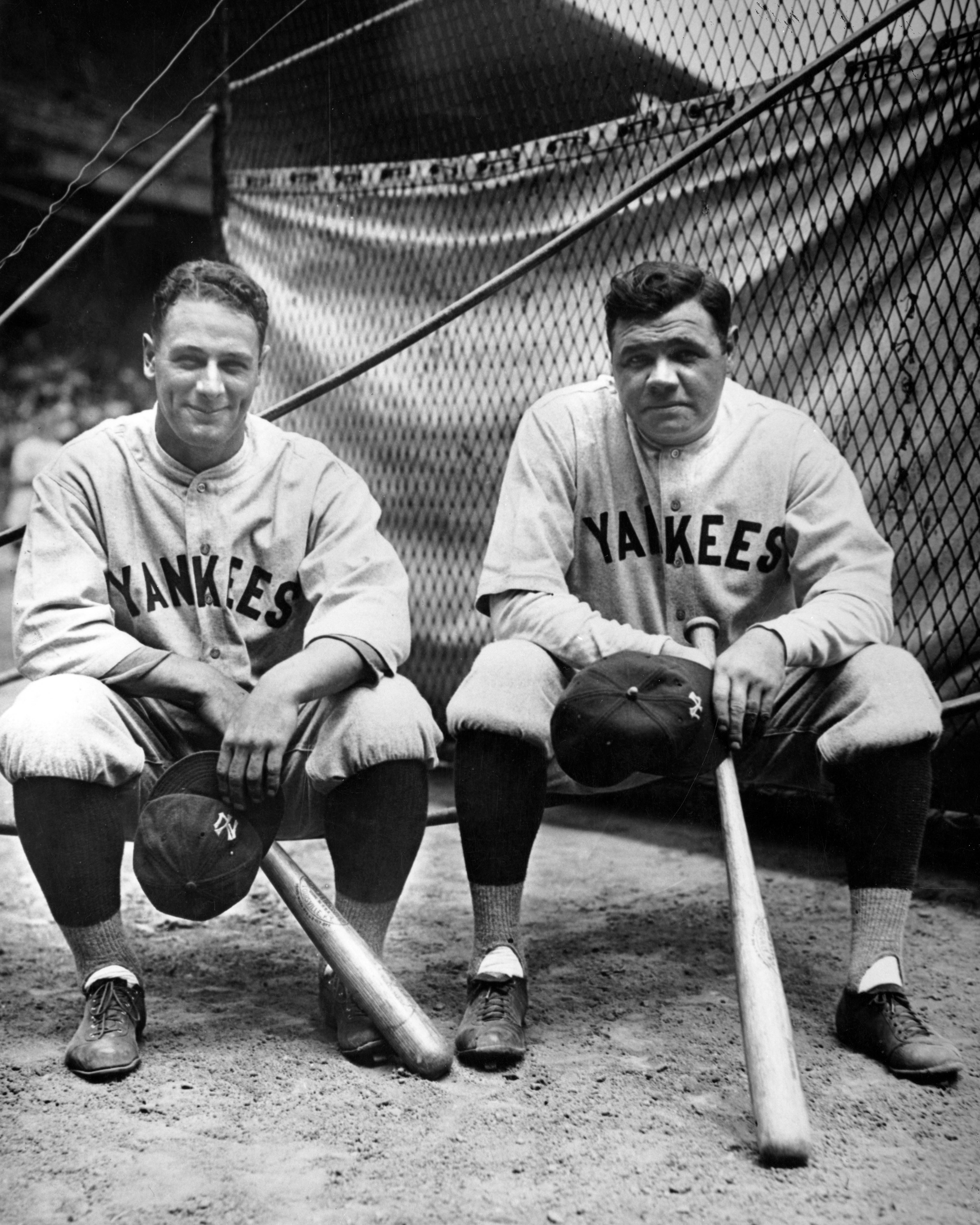
Lou Gehrig hits four consecutive home runs
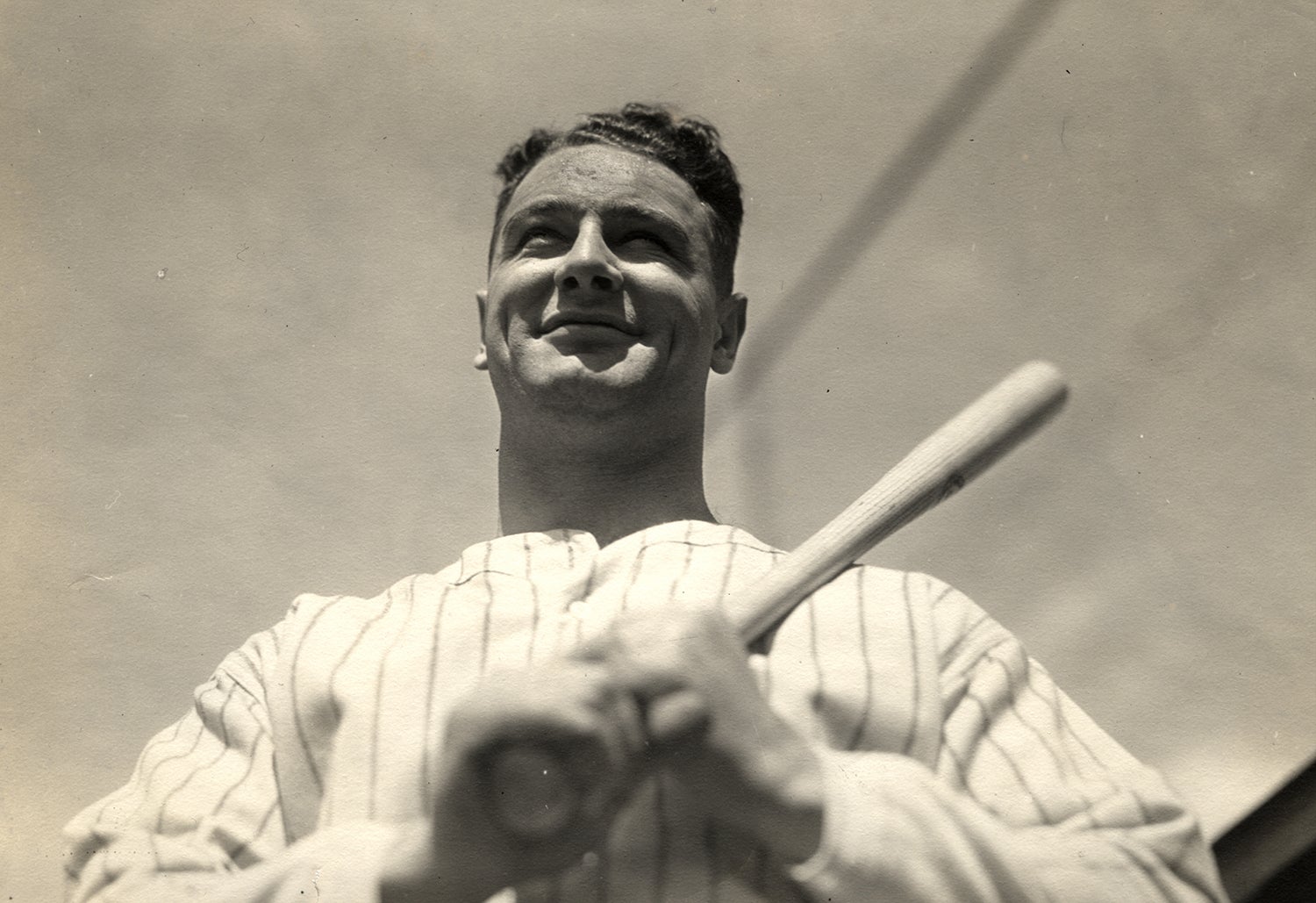
Lou Gehrig Day at Yankee Stadium

Lou Gehrig appears in his 2,000th consecutive game for the Yankees

Lou Gehrig hits four consecutive home runs


